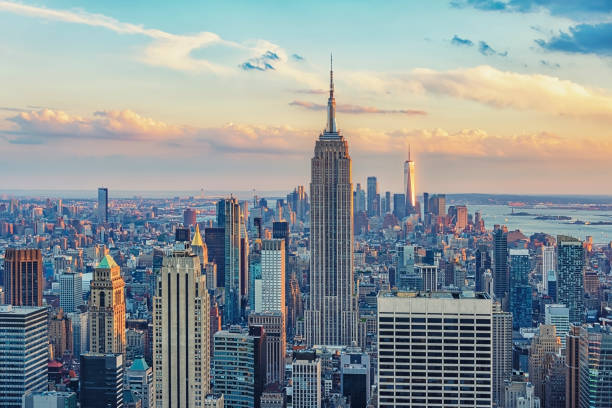Manhattan Casino Hearing Draws Divided Opinions
The first public hearing for the proposed Avenir casino resort in Manhattan drew a mostly positive reception Wednesday, but highlighted the competing pressures facing New York’s most densely populated borough as it hosts three separate bids for downstate gaming licenses.
The event, held at the Javits Center, brought more than 100 speakers over five hours, underscoring the scale of public interest and concern. The Avenir project, led by Silverstein Properties alongside partners Hyatt’s Destinations brand and Rush Street Gaming, would rise on an empty lot at West 41st Street and 11th Avenue. The development carries a $7 billion price tag and includes a casino, hotel, 500 affordable housing units, and a free public art gallery. The hearing was overseen by the project’s six-member community advisory committee (CAC), which must hold at least one more session before a binding vote by September 30. Silverstein will need four “yes” votes to advance in the process.
Balancing Legacy and Skepticism
Yet many local residents expressed sharp opposition. Several argued the neighborhood’s priority should be housing, not gaming. “The clear and pressing need for real estate development in New York City is housing, not a casino,” said resident Webb Seager. Others questioned whether the casino would bring crime and traffic to the already congested West Side. Silverstein presented data projecting that most visitors would arrive by subway (40%) or on foot (25%), with only 20% by car. The plan also calls for a free shuttle service to reduce congestion. Critics, however, doubted these figures and warned of new bottlenecks near the Lincoln Tunnel approaches. On public safety, the company promised an on-site NYPD substation, EMT staff, and partnerships with community groups. But skepticism persisted, with opponents questioning whether such measures would offset the risks of increased tourism.
Since its introduction, Avenir has undergone significant changes: shifting from two towers to one, expanding affordable housing commitments, and adding hospitality and gaming partners. Its fully zoned, shovel-ready site is a distinct advantage over competitors that require rezoning or demolition. Still, Avenir is competing in a crowded Manhattan field that also includes Caesars Palace Times Square and the Soloviev Group’s Freedom Plaza bid near the UN. Manhattan is the only borough with three proposals, intensifying scrutiny over how each would reshape already dense neighborhoods.
Beyond the immediate debate, the hearing surfaced larger questions about the state’s gaming future. Former casino accountant James Jorasch testified that land-based casino revenues eventually plateau, often leading states to pursue online gambling to fill fiscal gaps. New York already leads the nation in online sports betting revenue, but has yet to legalize online casino gaming. “Whether the casinos get part of that revenue or not is a decision that needs to be made, I think today, before we approve the casinos,” Jorasch said.
The clear and pressing need for real estate development in New York City is housing, not a casino.
What Comes Next
The Avenir CAC will hold at least one more hearing before issuing its vote, which will measure local support but not decide the license. Ultimately, the state’s Gaming Facility Location Board and regulators will select three downstate operators from a field of more than a dozen applicants.
For now, the Avenir bid reflects both the promise and polarization of New York’s casino expansion: a multibillion-dollar development pitched as an economic engine, but one that raises persistent questions about neighborhood priorities, urban congestion, and the long-term role of gambling in the state’s economy.









